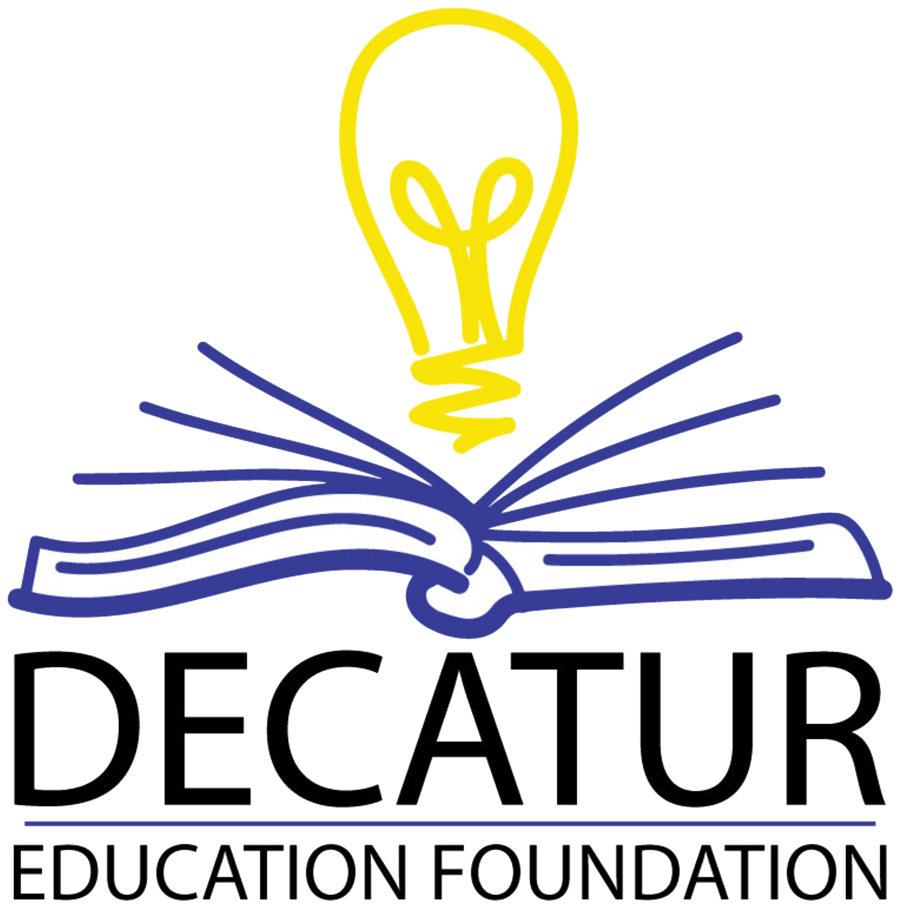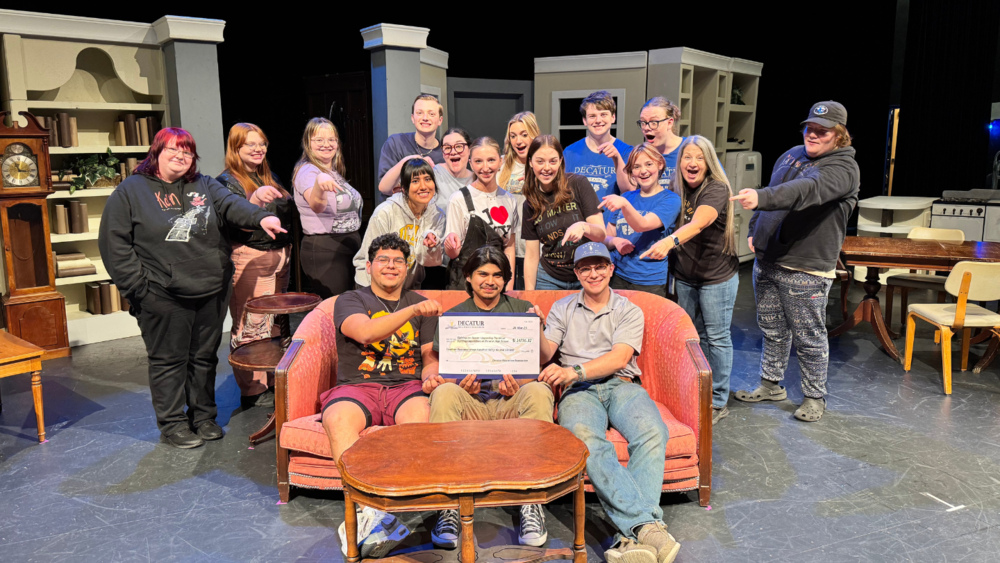Rex Williams was a little embarrassed as the years 1993-1996 flickered on the startup screen that manned the lighting console.
It was February 2025, and Decatur High School was hosting its annual UIL One Act Play, an exciting event that challenges visiting students to produce and perform a single-act show before contest season fully kicks off. Williams, a theatre student, was stationed in the auditorium’s control room and watched as student groups from various local schools attempted to work with a lighting board well past its prime.
“I realized most of the schools we hosted were used to newer equipment and struggled with our outdated equipment,” said Rex.
The aging, unreliable machine had long outlived its functional usefulness.
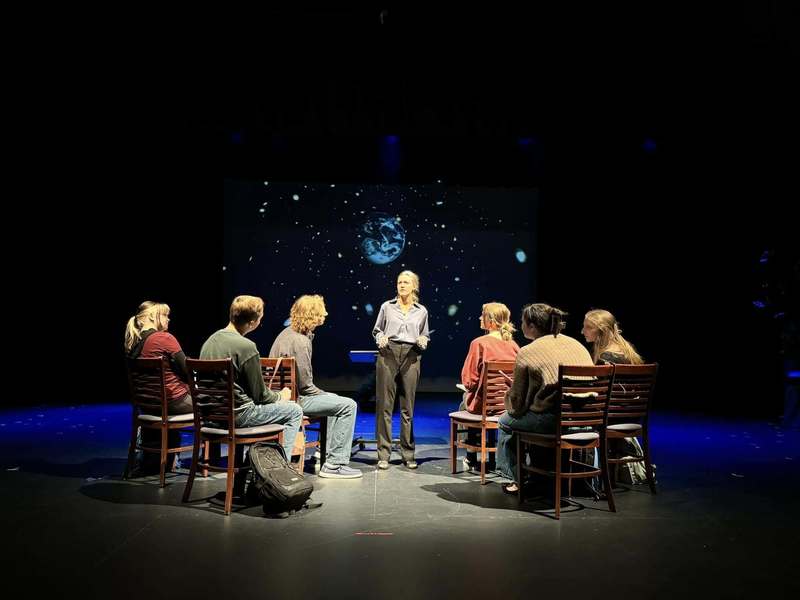 And it’s not just the competitions that were problematic. Band concerts, choir performances, teacher training, theatre shows, and even parent meetings all relied on lights controlled by the dated machine.
And it’s not just the competitions that were problematic. Band concerts, choir performances, teacher training, theatre shows, and even parent meetings all relied on lights controlled by the dated machine.
“Lighting is imperative and will give a more professional look to our shows,” said senior Maggie Ballou. “There is no show if there is no tech. Lighting allows the audience to see the actors, and get the full experience.”
“The technical aspect gives life to the stage,” said Williams. “It's one of, if not the most important parts of a show; it sets the mood and the location or even the time. If the lights were a dark red it would show that something scary or evil is happening. Without the tech aspect of a show there is no setting for mood or time. “
Little did these students know that the lighting board was about to take its final bow.
Grants Powered by Giving
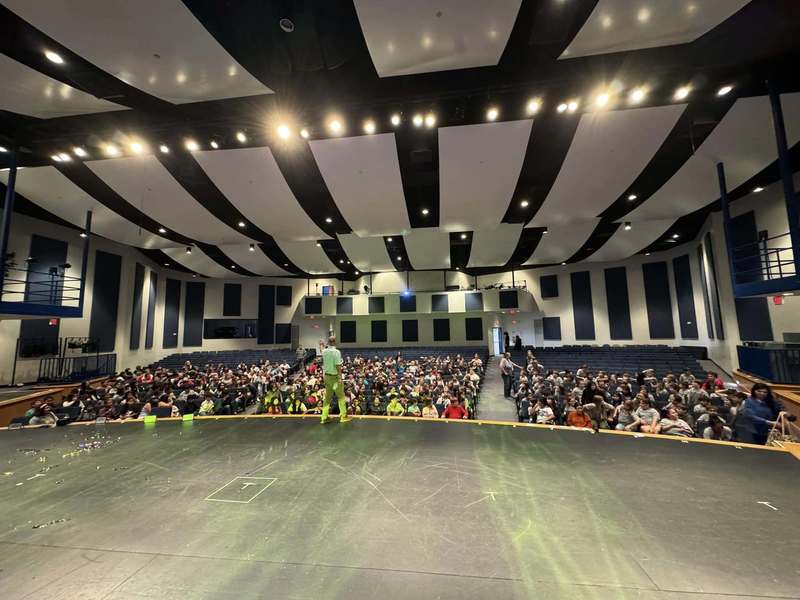 The auditorium itself, brand new when the building was opened in 2006, is beautiful and well maintained.
The auditorium itself, brand new when the building was opened in 2006, is beautiful and well maintained.
At approximately 7,700 sq. ft. it features a performance stage and rows of seating to accommodate 716 audience members, with wheelchair access for an additional 10 to 15 individuals. It has served as the stage for countless school and community events, and at some point, nearly every Decatur ISD student will experience the space.
In many ways, the auditorium is the heartbeat of Decatur High.
The only major downfall is the equipment that keeps the space alive. However, late last spring, the fine arts program was gifted a solution for at least one challenge: a $14,736.32 check to replace the lighting board with a new, professional-grade console.
The budding thespians and their director, Rebecca Phillips, were surprised during a rehearsal with the check from the Decatur ISD Education Foundation, or DEF. Founded in 2003, the independent nonprofit was started by committed citizens who loved Decatur public schools and wanted to help fund unique, educational ideas.
With the fine arts funds awarded in 2025, DEF was able to mark over $1 million in giving back to DISD through grants and initiatives.
“When the community gives, whether it’s $20 or $20,000, they are directly investing in projects like this one,” said Blake Haney, the foundation’s president. “Large grants happen because many people and businesses contribute consistently over time, allowing DEF to respond when a major need arises.”
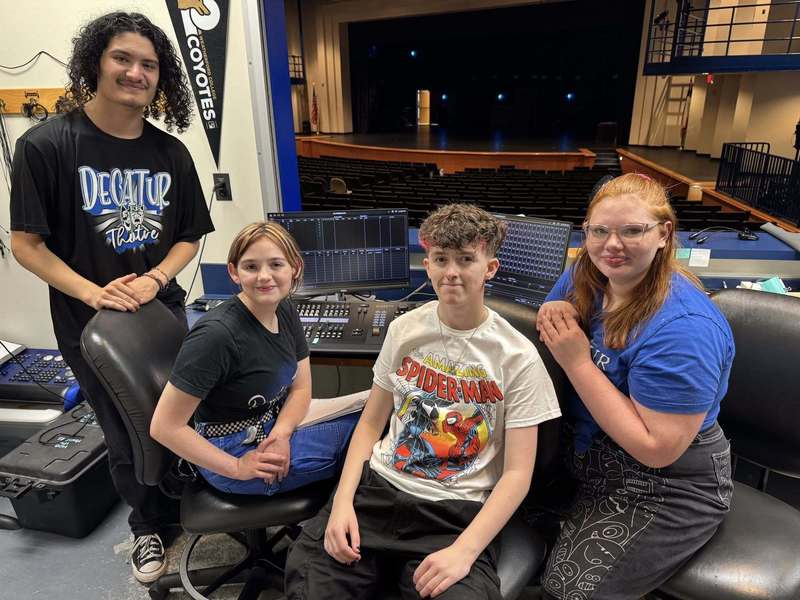 “I am really excited about the new board's capability,” said Ballou. “There were several times when rehearsals were set back due to the lightboard not working properly.”
“I am really excited about the new board's capability,” said Ballou. “There were several times when rehearsals were set back due to the lightboard not working properly.”
“This console has features that our older lightboard would not have been able to do in 100 years,” said Williams.
Among the features, the industry-standard equipment has advanced settings such as a “blind mode” that allows students to fix lighting issues without disrupting a live performance. It also has a faster processing speed and loads lights more quickly. And it has the ability to group lights, which leads to smoother, more professional transitions in between scenes.
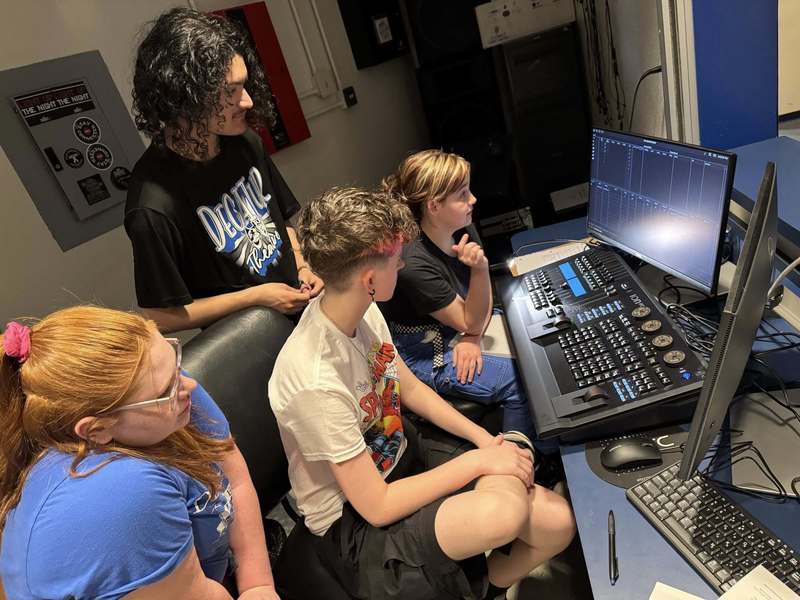 Phillips, their teacher and director of the high school theatre program, said the modern console, the ETC Ion XE 20, will give her students an edge in competitions and, eventually, the job market.
Phillips, their teacher and director of the high school theatre program, said the modern console, the ETC Ion XE 20, will give her students an edge in competitions and, eventually, the job market.
“Our lighting operators have struggled at contests because they had no experience on newer consoles,” said Phillips, adding that she often had her “kiddos” watch training videos and sketch buttons on paper to practice, but "nothing compares to actually running the board.”
“In One Act Play, our old board left me a little unprepared for the competition,” said Senior Taylor Draper, a board operator. “I had difficulty transferring my light cues because the new board layouts were unfamiliar.”
In theatre, missed light cues can be detrimental for the actor.
“The students get it,” said Phillips. “They have so much more confidence now, and I feel such a sense of pride for them watching them sit behind the new console with huge smiles.”
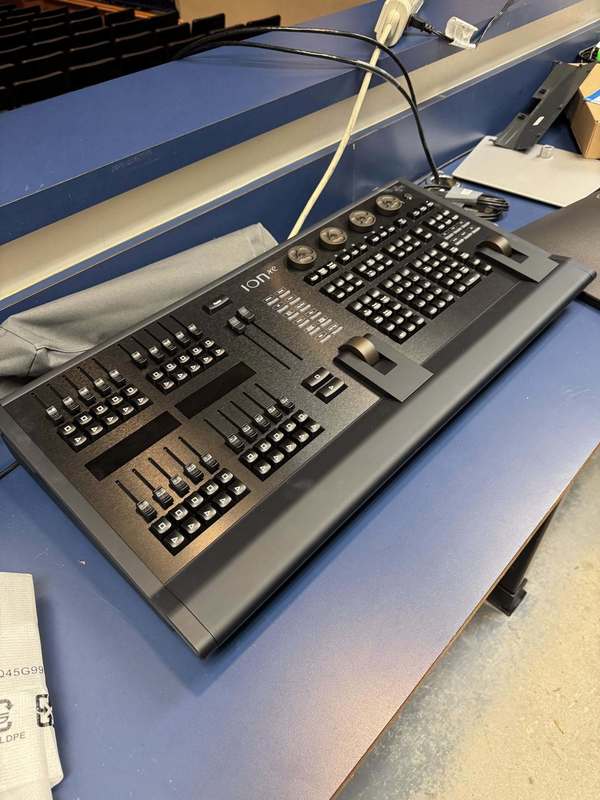 While the new lighting board solves one problem, Phillips is mindful that there are others, both for the theatre program and for teachers throughout the district.
While the new lighting board solves one problem, Phillips is mindful that there are others, both for the theatre program and for teachers throughout the district.
“Having outdated equipment limits our capabilities, for all our teachers,” she said.
While DEF’s mission is not specifically to replace old learning obstacles, its goals often align with big school needs. The foundation has funded everything from outdoor learning initiatives to STEM makerspaces to book vending machines, which each elementary Parent-Teacher Organization restocks throughout the year.
“We believe in supporting the full spectrum of student learning, including the arts,” said Haney about DEF. “Fine arts play a vital role in fostering creativity, discipline, and confidence, and this grant underscores our belief that those experiences are just as essential as classroom instruction. It also demonstrates DEF’s capacity to respond to large-scale needs when they align with our mission.”
As for the grant application process, which is open again each fall for DISD teachers and staff now, Phillips is encouraging.
“Don’t be shy,” she said. “It can be very intimidating, daunting, and time consuming but after seeing the overwhelming support from the DEF and the joy my students have because of this, I will always apply.”
As for the $14,000 grant check, DEF’s largest ever awarded to a single school, Haney said he is mindful of how student potential is enriched by community love and support.
"We’re grateful to every donor, volunteer, and advocate who made this possible," Haney said. "This grant isn’t just about lights—it’s about shining a spotlight on student talent, dedication, and creativity for years to come, and it’s about taking pride in the hub of our largest campus.”
Interested in supporting DEF?
Visit their website to donate, volunteer or learn more: https://www.decaturisd.us/o/educationfoundation.
